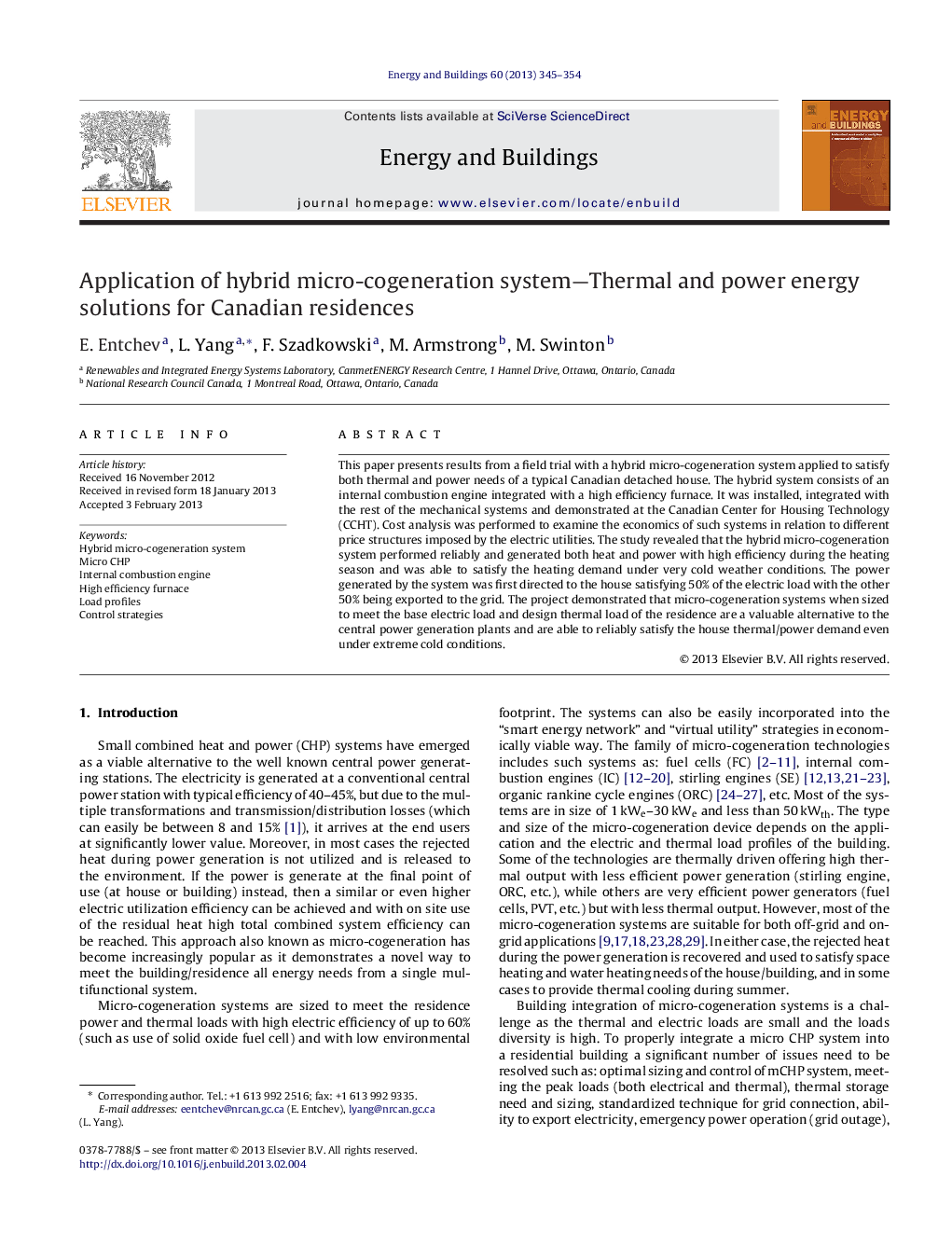| Article ID | Journal | Published Year | Pages | File Type |
|---|---|---|---|---|
| 263362 | Energy and Buildings | 2013 | 10 Pages |
This paper presents results from a field trial with a hybrid micro-cogeneration system applied to satisfy both thermal and power needs of a typical Canadian detached house. The hybrid system consists of an internal combustion engine integrated with a high efficiency furnace. It was installed, integrated with the rest of the mechanical systems and demonstrated at the Canadian Center for Housing Technology (CCHT). Cost analysis was performed to examine the economics of such systems in relation to different price structures imposed by the electric utilities. The study revealed that the hybrid micro-cogeneration system performed reliably and generated both heat and power with high efficiency during the heating season and was able to satisfy the heating demand under very cold weather conditions. The power generated by the system was first directed to the house satisfying 50% of the electric load with the other 50% being exported to the grid. The project demonstrated that micro-cogeneration systems when sized to meet the base electric load and design thermal load of the residence are a valuable alternative to the central power generation plants and are able to reliably satisfy the house thermal/power demand even under extreme cold conditions.
► Field trial and performance analysis of a hybrid micro-cogeneration system. ► Hybrid micro-cogeneration system performed reliably during the trial generating both heat and power with high efficiency. ► The system satisfied the thermal/power demands of a single detached house even under extreme outdoor conditions. ► Cost analysis performed to examine the economics under various utility price structures. ► Cost saving of hybrid energy system shown while compared to a conventional heating system with current utility prices.
